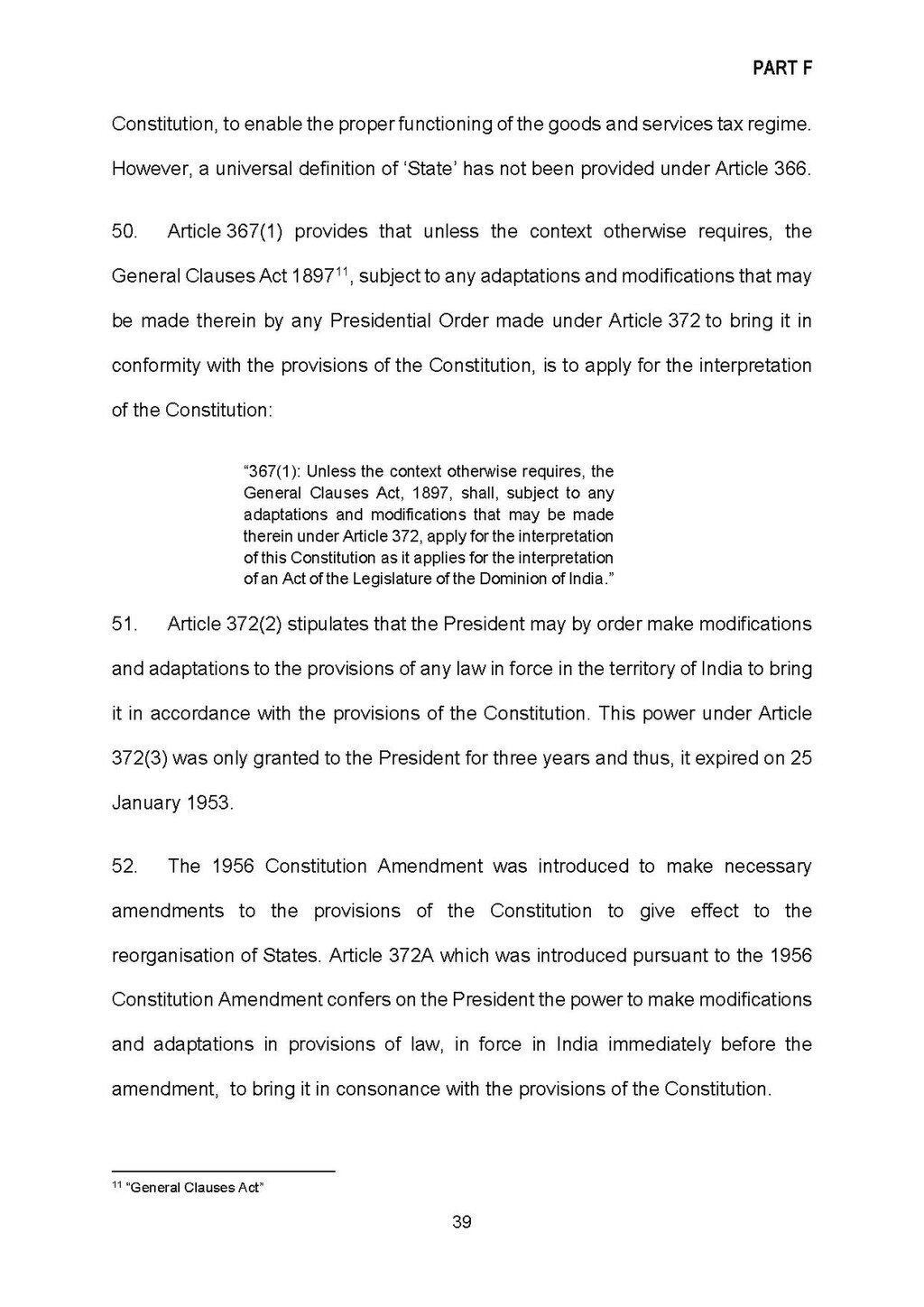Constitution, to enable the proper functioning of the goods and services tax regime. However, a universal definition of ‘State’ has not been provided under Article 366.
50. Article 367(1) provides that unless the context otherwise requires, the General Clauses Act 1897[1], subject to any adaptations and modifications that may be made therein by any Presidential Order made under Article 372 to bring it in conformity with the provisions of the Constitution, is to apply for the interpretation of the Constitution:
“367(1): Unless the context otherwise requires, the General Clauses Act, 1897, shall, subject to any adaptations and modifications that may be made therein under Article 372, apply for the interpretation of this Constitution as it applies for the interpretation of an Act of the Legislature of the Dominion of India.”
51. Article 372(2) stipulates that the President may by order make modifications and adaptations to the provisions of any law in force in the territory of India to bring it in accordance with the provisions of the Constitution. This power under Article 372(3) was only granted to the President for three years and thus, it expired on 25 January 1953.
52. The 1956 Constitution Amendment was introduced to make necessary amendments to the provisions of the Constitution to give effect to the reorganisation of States. Article 372A which was introduced pursuant to the 1956 Constitution Amendment confers on the President the power to make modifications and adaptations in provisions of law, in force in India immediately before the amendment, to bring it in consonance with the provisions of the Constitution.
39
- ↑ “General Clauses Act”
